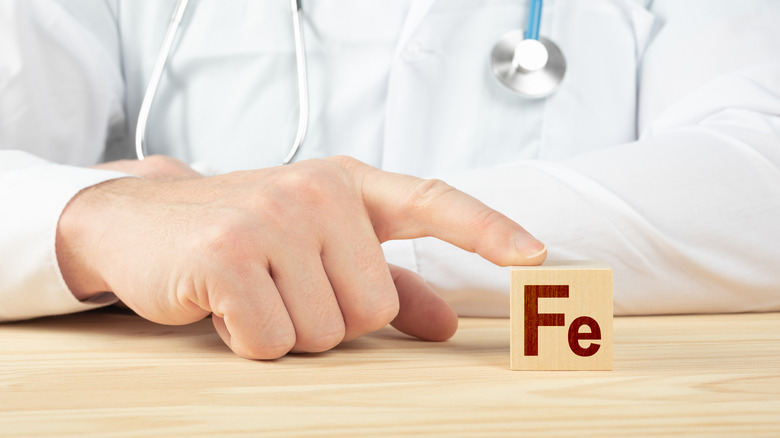Inside The Connection Between Menstruation And Anemia
There's a lot more to anemia than most people realize. This condition, which is characterized by low levels of healthy red blood cells, can have a significant impact on a woman's overall health and well-being. One of the most common causes of anemia is iron deficiency, and this is often linked to menstruation (via Healthline).
Menstruation can cause anemia for several reasons. Blood loss during menstruation can lead to iron deficiency in people who have heavy periods. The hormonal changes that occur during the menstrual cycle can also interfere with the body's ability to absorb iron. Finally, a poor diet leading up to and during your period can contribute to anemia if you don't get enough iron in your diet. If you think you might be at risk for anemia, it's important to talk to your doctor. There are a number of blood tests that can be used to diagnose anemia and treatment options are available.
What to know about anemia
Anemia is a condition in which the blood has a lower than normal number of red blood cells (via Mayo Clinic). Red blood cells carry oxygen from the lungs to the rest of the body. There are several different types of anemia, including aplastic anemia, iron deficiency anemia, and sickle cell anemia. The most common symptom of anemia is fatigue. Other symptoms may include shortness of breath, pale skin, fast heartbeat, and dizziness.
Anemia can be caused by a variety of things including blood loss, poor nutrition, and certain medical conditions. Treatment for anemia depends on the underlying cause. If anemia is caused by a lack of iron in the diet, iron supplements may be recommended. If anemia is due to blood loss, treatment may involve surgery or blood transfusions. There are some things you can do to help prevent anemia, such as eating a balanced diet and taking an iron supplement. If you're at risk for anemia, your doctor may also recommend regular checkups and blood tests.


